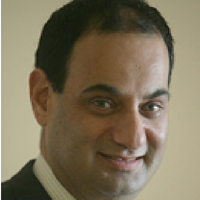
In the beginning, ethical investing was about avoiding those companies that made their money from “sin”.
Tobacco companies headed the list and superannuation trustees, especially those on industry fund boards, made a great play of not investing their members’ super in those multinationals where their earnings, in part, derived from selling “gaspers”. To a lesser extent, alcohol and gaming companies also were in their sights; their products, especially if indulged to excess, did have dire social consequences.
But that list has since lengthened; uranium mining and timber companies that log old-growth forest can attract investor opprobrium. But the biggest issue in recent years has revolved around global warming, particularly as it relates to what environmental activists call the “rogue” fossil fuel companies who they accuse of being the prime culprits.
Today, there is no shortage of lobby groups, environmental activists, academics, and even analysts, telling people where to either invest their money or where they should be telling their superannuation fund trustees to invest. And their message is being heard. Organisations as diverse as church groups, universities (the Australian National University announced last year it was selling its stake in seven mining companies) and, in irony of ironies, even the heirs to the oil-based Rockefeller fortune are cashing in their fossil fuel investments and moving into renewables.
But what’s more remarkable is how this message is spreading to what we traditionally call “mum and dad” investors. From what we observe they are looking to make a difference via an ethical approach to investment. Although it is a phenomenon that’s more associated with Gen X and Y, it would be wrong to say all baby boomers are indifferent to the social and environmental consequences of where they invest.
The end result of this investment trend may force financial advisers to become far more literate about where some of their clients will and won’t invest, especially if they want to attract Gen X and Y. Make no mistake: this is a grass roots movement that is changing adviser behaviour, not the other way around. Significantly, advisers who have identified this trend are now finding there is a lucrative market in offering relevant advice around ethical investment.
That said, these investors are not divorced from investment reality; the anecdotal evidence from advisers suggests the rate of return is integral to the process. Perhaps more importantly, in recent years investors who have opted for a clear conscience when making their decisions have not suffered, with figures showing ethical investments have more than held their own.
There is another important aspect to this issue known as impact investing. In a very real sense it is the flip side to avoiding investments in an activity you consider morally reprehensible.
Instead, impact investing looks for opportunities to deploy capital in an investment where there is a discernible social, economic or environmental benefit, as well as generating a respectable rate of return.
Impact investing can take many forms. Funds that offer micro loans to get fledgling businesses off the ground, especially in Third World countries, are an obvious example. It can also occur across asset classes, including equities, private equity or venture capital, and debt.
Although it’s a generalisation, I suspect the fund management and investment advisory industries have been primarily driven by rates of return – the traditional way to keep the customer satisfied. Well, some socially and environmentally motivated superannuation funds have been forcing fund managers to change their approach to investment (although it shouldn’t be exaggerated), and now it seems small investors are doing the same at the other end of the market.
For those investors, the good news is that a healthy rate of return and a clear conscience are not mutually exclusive.
 George Lucas is managing director of Instreet Investment Limited. He has over 24 years' experience in the investment banking and funds management industries specialising in developing, managing and structuring financial products. He was previously a director of two listed investment trusts, chief investment officer at Mariner Financial, and a senior equities derivatives trader with Citibank and First Chicago in London.
George Lucas is managing director of Instreet Investment Limited. He has over 24 years' experience in the investment banking and funds management industries specialising in developing, managing and structuring financial products. He was previously a director of two listed investment trusts, chief investment officer at Mariner Financial, and a senior equities derivatives trader with Citibank and First Chicago in London.
Never miss the stories that impact the industry.